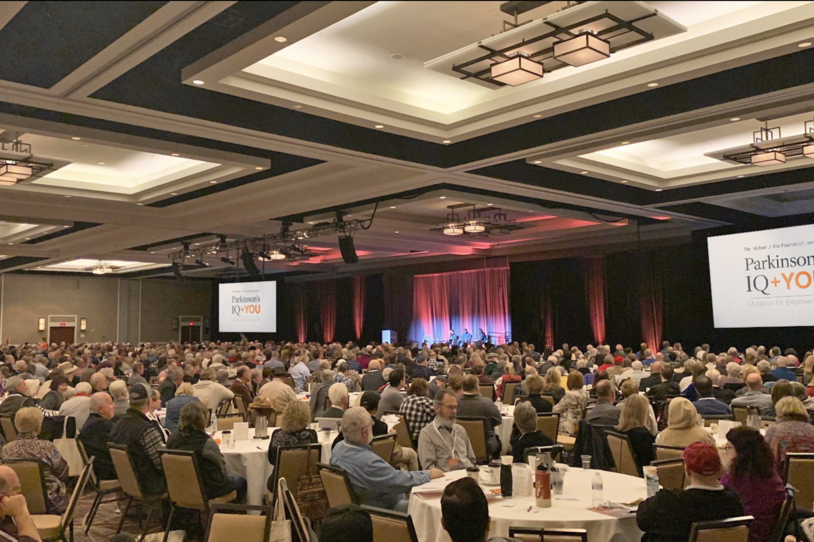
When a commentary in Nature Reviews Bioengineering recently cited The Michael J. Fox Foundation (MJFF) as an example of meaningful patient involvement in trial design, it underscored something core to our DNA: better science starts with the people who live with Parkinson’s every day.
At MJFF, people with Parkinson’s disease (PD) are at the heart of what we do. The Foundation aims to integrate the perspective of people with Parkinson’s and the loved ones who support them into every aspect of our activities. Our in-depth knowledge of the patient experience and strong community connections allow us to guide research efforts in ways that integrate and value the contributions of people with PD.
Patient-Centricity: A Core Principle
From defining what Parkinson’s disease means day-to-day to surfacing unmet needs, we treat inclusivity, diversity and accessibility in Parkinson’s research as scientific essentials.
A broad spectrum of patients and loved ones — at varied stages of PD, from diverse backgrounds and geographies — are integral partners.
“We take that connection with our community seriously,” said Maggie Kuhl, head of patient engagement at MJFF. “By listening and collaborating, we ensure that their priorities and perspectives not only guide our strategies but also inspire a broader, more inclusive approach to how Parkinson’s research is conducted worldwide.”
How MJFF Incorporates Patient Insights into Research
Our strategic research agenda orbits around four pillars, each working to urgently drive cures and better treatments for all.
“People and families with Parkinson's are waiting for better treatments,” said Kuhl, “We know that working with our community will help us move faster and be more successful, and their input can be seen in every aspect.”
The Michael J. Fox Foundation works to:
- Understand Parkinson’s disease through efforts such as our landmark Parkinson’s Progression Markers Initiative (PPMI), which collects and analyzes data from an international cohort to identify biological indicators of the disease. Participants share clinical and biological data in this and other efforts to uncover new ways to measure and stop disease.
- Improve treatments by prioritizing symptoms our community reports disrupt life most (e.g., gait, balance and non-motor challenges). Our target advancement and therapeutics portfolios address these challenges and consider patient inputs on how therapies are administered (e.g., oral medication vs. infusion).
- Accelerate clinical trials through efforts like recruitment consulting, where we help study sponsors understand how to best design accessible studies and recruit participants to speed findings.
- Catalyze community by bringing together scientists, clinicians, people with Parkinson’s and advocates to help us serve the community while bringing its full power to bear.
To keep perspectives front and center, we partner with a network of partners with diverse backgrounds and lived experiences.
“Parkinson's does not discriminate, and we want to hear from everyone so that our science and its solutions have the broadest impact possible,” Kuhl added.
Our lived experience partners lend their expertise to research through:
- Pre-study advising: Participants provide feedback on research designs, including inclusion/exclusion criteria and compensation.
- Focus groups and surveys: MJFF leverages qualitative insights from patients to better understand their experiences, hopes, and fears.
- Panels and advisory boards: Patients are key opinion leaders, sharing their perspectives at conferences and with research teams.
Turning Know-How into Industry How-To
What we learn does not stay in-house; we publish, present and partner with industry groups to drive patient-focused research. These collaborations include increasing visibility for clinical trials, offering recruitment and retention consultancy, sharing best practices to make trials more inviting and representative, and gathering patient-focused advisory insights. These factors can speed recruitment and increase compliance and retention, reducing study timelines and limiting costs.
MJFF runs several platforms that directly benefit people with PD and aid industry partners in accelerating trials in search of cures.
- Fox Trial Finder: A platform that lists actively recruiting trials, customizable for patient-friendly language that connects volunteers to studies that fit their lives.
- Buddy Network: An online community for people with PD and their loved ones that also spotlights active trials and resources to a community of over 21,000 users.
- Fox Insight: An online study that collects survey data from thousands of volunteers, with and without PD, around varied disease topics. All de-identified data is shared with researchers.
Our efforts have an impact beyond Parkinson’s disease. Through consortia such as the Clinical Trials Transformative Initiative, Patients Focused Medicines Development and PALADIN, MJFF supports creating common practical standards across patient engagement and learns from others as well.
Looking Ahead
The journey toward a cure for Parkinson’s is a collaborative effort. We recognize that when lived experience contributes to science, the results land closer to our ultimate goal of better days and a tomorrow without PD for all. That’s why we will keep listening, sharing and ensuring progress carries patients’ imprint.